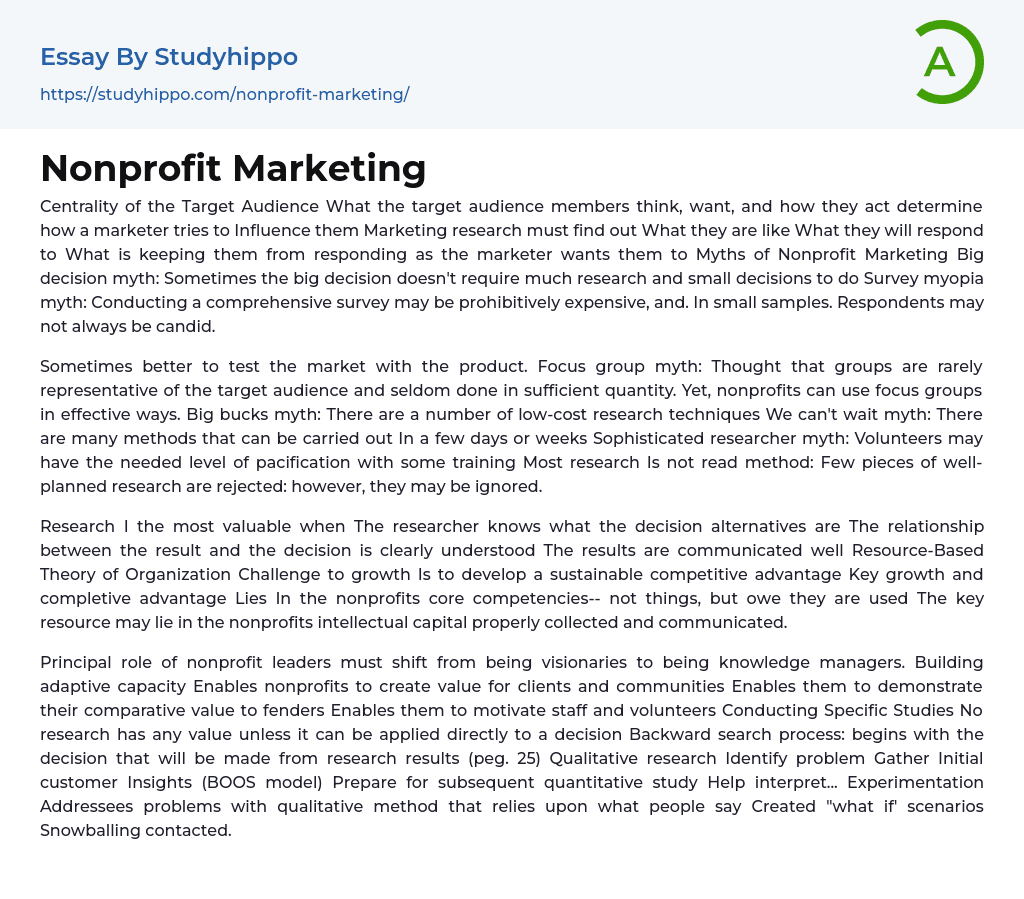Understanding the thoughts, desires, and actions of the target audience is essential for marketers as it determines their marketing strategies. Marketing research plays a vital role in identifying the target audience, understanding their preferences, and uncovering any obstacles that may hinder their desired response. In nonprofit marketing, there are several myths to address.
The first myth suggests that extensive research is unnecessary for significant decisions but crucial for smaller ones. Another myth relates to comprehensive surveys being expensive and potentially leading to dishonest responses in small sample sizes; this is known as survey myopia. Despite the misconception that focus groups are rarely representative or conducted adequately, nonprofits can effectively utilize them. Furthermore, low-cost research techniques exist to debunk the myth of requiring substantial funds for research.
Research methods can also be completed with
...in a short timeframe of days or weeks. Lastly, it is incorrect to assume that only sophisticated researchers can conduct meaningful research since volunteers with appropriate training have the potential to fulfill this role.
Finally, few well-planned research studies may be rejected but they could end up being ignored. Research is most valuable when the researcher has knowledge of decision alternatives and understands the relationship between results and decisions. Effective communication of results is also important. According to the Resource-Based Theory of Organization, developing a sustainable competitive advantage for growth lies in the nonprofit's core competencies and how they are used, particularly intellectual capital that needs proper collection and communication. Nonprofit leaders should shift their role from visionaries to knowledge managers in order to build adaptive capacity, create value for clients and communities, demonstrate comparative value to funders, and motivate staff and volunteers.
Conducting specific studies is only valuable if directly applicable to a decision. A recommended backward search process starts with the decision that will be made based on research results. Qualitative research helps identify problems and gather initial customer insights which can prepare for subsequent quantitative studies and aid in interpretation. Experimentation addresses issues with qualitative methods by considering "what if" scenarios and engaging in snowballing.
- Advertisement essays
- Advertising essays
- Anheuser-busch essays
- Audience Theory essays
- Brand essays
- Brands essays
- Competitor Analysis essays
- Consumer essays
- Detergent essays
- Marketing Management essays
- Marketing Mix essays
- Marketing Plan essays
- Marketing Research essays
- Marketing Strategy essays
- New Product Development essays
- Point Of Sale essays
- Price essays
- Procurement essays
- Product essays
- Product Differentiation essays
- Product Placement essays
- Promotion essays
- Promotion And Marketing Communications essays
- Research Design essays
- Retailing essays
- Trademark essays
- Coaching essays
- Critical Thinking essays
- homework essays
- Learning essays
- Library essays
- Listening essays
- Literacy essays
- Mentor essays
- Physical Education essays
- Project essays
- Reading essays
- Research essays
- Sex Education essays
- Social Studies essays
- Standardized Testing essays
- Study Plan essays
- Teaching essays




